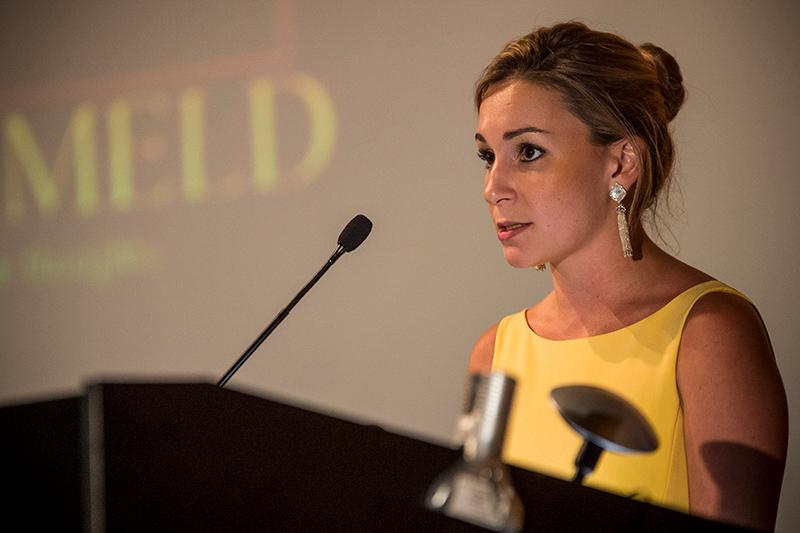Tulane addresses the issue of sexual assault
Margaret Martin, a 2017 School of Liberal Arts graduate and second-year law student, asked a favor of the crowd of students gathered in Kendall Cram Lecture Hall for the third annual Shifting the Paradigm event on the Tulane University uptown campus. While the crowd was handed glow sticks, Martin invited students to ignite them if they were survivors of sexual violence.
The crackle of the glow sticks permeated the darkened room as illuminated hands raised into the air — each light signaling an untold story of perseverance over unimaginable pain.
Martin is a Tulane community member advocating that these stories be told in the unrelenting fight to stop sexual violence on campus. As a survivor of sexual assault, she also shared her own experience.
“Sometimes, the memories are like nightmares. Other times, the memories come in the form of ideas of how I can help someone else,” said Martin. “Today, I am no longer paralyzed by what happened to me. Your story is powerful, and you have so much potential to be a force of good.”
Welcoming open conversation concerning sexual violence’s impact, the event reinforced the university’s commitment to building a community through action, believing and supporting survivors and showing that sexual violence will not be tolerated.
“Here at Tulane, our obligation is not just to deal with the horrible aftermath of sexual assault but to find answers in how to prevent it,” said Tulane University President Mike Fitts.
Tania Tetlow, senior vice president of the university and chief of staff, noted that the completion of the university’s first sexual misconduct climate survey was a tremendous step forward in finding solutions.
Organized by Tulane’s Title IX coordinator Meredith Smith, the survey received a 47 percent response rate from the student population.
“Tulane has already been doing the things that campuses know how to do, and the disturbing…truth is that we’re learning it is not enough. The climate survey is creating a wealth of data that will answer questions we didn’t even know to ask before,” said Tetlow.
Tetlow also said that the survey’s data will provide keys to understanding how often drugs and alcohol are used as tools by perpetrators, how students are affected by rape culture and which groups are at higher risks for sexual violence.
The survey’s results will be released at a campus forum on Jan. 31, 2018.
Smith credits the climate survey for encouraging more people to come forward.
“We have students who filed reports because they took the climate survey and then realized that what happened to them was wrong,” said Smith.

